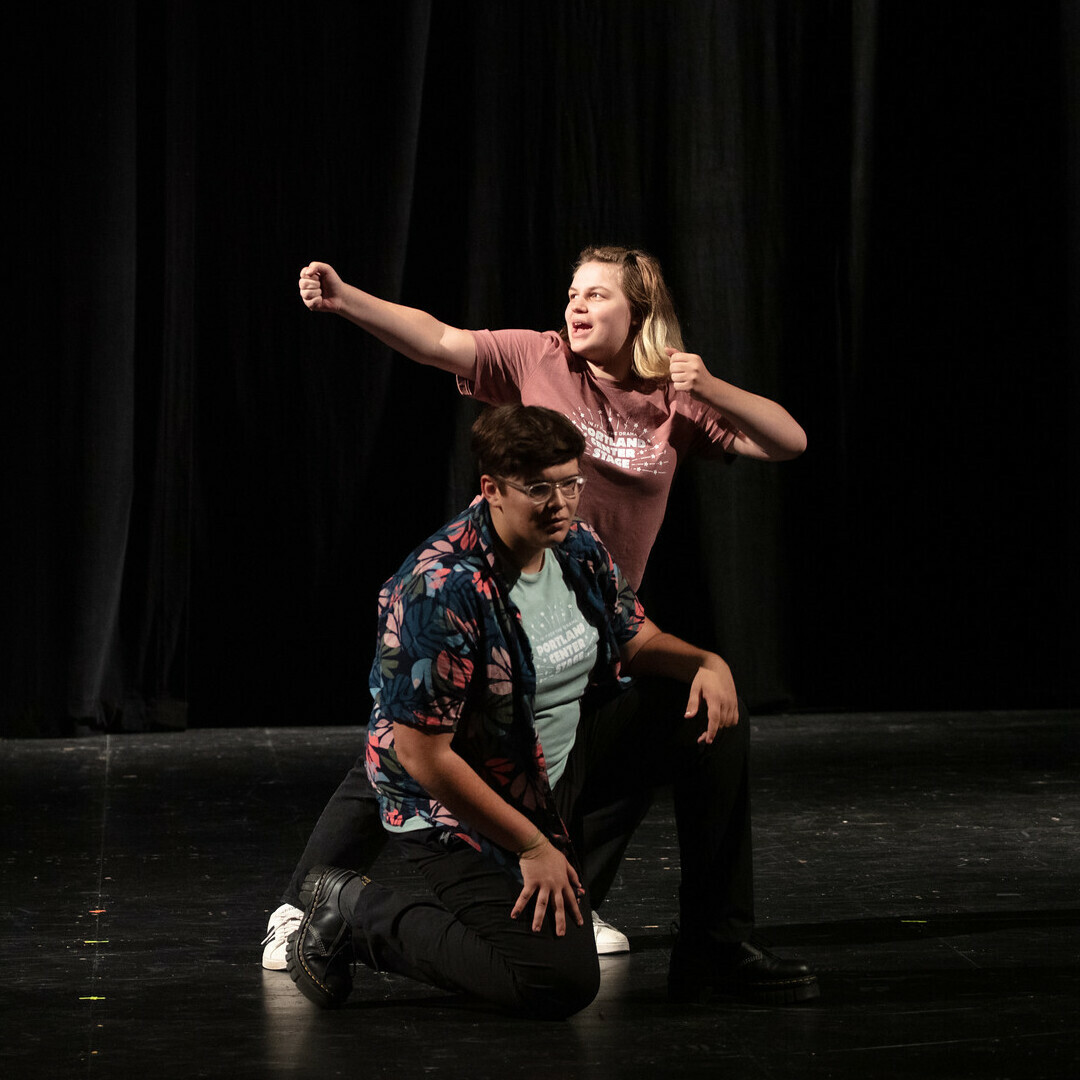An Interview with Mary Kathryn Nagle
You were commissioned to write this play for Portland Center Stage at The Armory’s Northwest Stories series. In thinking about stories connected to this region, what was it about Sacajawea's story that you wanted to explore?
I wanted to explore her erasure. Here is a young girl who guided two of America's greatest heroes through the Rocky Mountains and to the Pacific Coast and yet the true story of her survival has, for the most part, been silenced. She was a survivor of abuse and kidnapping, she was an incredibly strong Native girl. I think it's time for America to deconstruct the mythology of Lewis and Clark and learn the truth about Sacajawea.
As a playwright, you are well-known for works that depict the past alongside the present. How do you see that juxtaposition serving this play in particular?
When I was at Standing Rock, I would often drive between Bismarck and Cannonball to attend to different needs or issues that arose. As I drove along the Missouri River, I was taken with the river’s beauty. And then I noticed the signs. Lake Sakakawea. Historical markers stating that Lewis and Clark had crossed the river at the very site of the camp along the Cannonball. And so then I looked, and I found Lewis and Clark’s journal entry on the day in October 1804 when they passed by the very spot that was now the epi-center for the resistance against the Army Corps of Engineers, the direct descendant agency of the Army Corps of Discovery.
I asked myself, what would Sacajawea do if she was alive today? Who would she be and how might she experience the same river she embarked on with her kidnapper and two lost Americans just over two hundred years ago? And then I sat down to write this play.
You were one of the people who went to Standing Rock to protest the pipeline. Could you share a little about your experiences there and how they informed this play?
My experiences at Standing Rock definitely influenced the writing of this play. I just couldn't believe it when the events on September 3, 2016, took place. First, I couldn't believe that the affidavit Tim Mentz filed didn't result in the Judge granting the Standing Rock Sioux Tribe's motion for preliminary injunction. Would a federal Judge allow Dakota Access to destroy graves in Arlington Cemetery? Why are the graves of the Lakota/Dakota any different? Then when, within 24 hours of Tim Mentz having filed his affidavit, Dakota Access showed up and bulldozed all of the identified graves without any consequence from any federal or state authority I knew I had to write a play about this. America cannot remain silent while private companies bulldoze Native graves for profit — and in violation of federal law. There has to be accountability. But first and foremost, non-Native Americans have to decide they care. They can't remain silent when private companies behave this way.
As a lawyer, you fight for Indigenous rights as a partner for Pipestem Law, PC. How does your play Crossing Mnisose intersect with your work as a lawyer?
As a lawyer, I work to restore the inherent sovereignty and jurisdiction of our Nations to protect our citizens, lands, sacred sites, and culture. As a playwright, I write plays that bring to light moments today, and in American history, where America has either attempted to erase our sovereignty or erase us. My hope is that my plays will help to transform American culture at large from a culture that has, for most of America's existence, been complacent with genocide to a culture that respects our Nations and our citizens for who we are today, and who we were before the United States existed.
What sort of research did you do for this play?
I read all of the white writings on the subject matter (i.e. the Lewis and Clark journals, all of the scholarly white research on Lewis and Clark), but the most important work I did was traveling to Fort Hall, Idaho and visiting the Shoshone-Bannock Tribes. There, I met and spoke with Sacajawea's descendants. I also spoke to many folks while out at Cannonball, in the late summer and fall of 2016. All of my research for this play comes directly from the greatest experts on historical events impacting Native people — the descendants of the Native people who experienced the impacts directly.
What are you hoping people living in the Northwest region take away from this play?
I hope folks in the Northwest will be able to step back and realize just how much we rely on mythologies here in the United States. Mythologies are not necessarily evil, but when they are used to perpetuate harmful stereotypes of others (here, Natives) they create a good deal of harm. Going forward, I hope Americans create more space for true stories about our Native peoples and Nations here in the United States.
Interview by Claudie Jean Fisher, Associate Director of Marketing & Communications.
Portland Center Stage is committed to identifying & interrupting instances of racism & all forms of oppression, through the principles of inclusion, diversity, equity, & accessibility (IDEA).

















